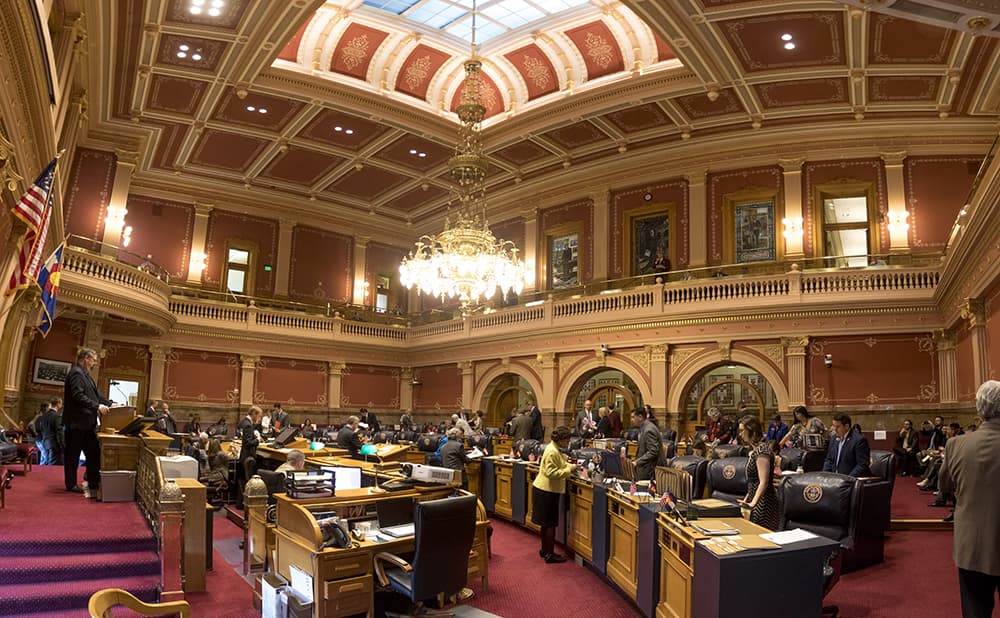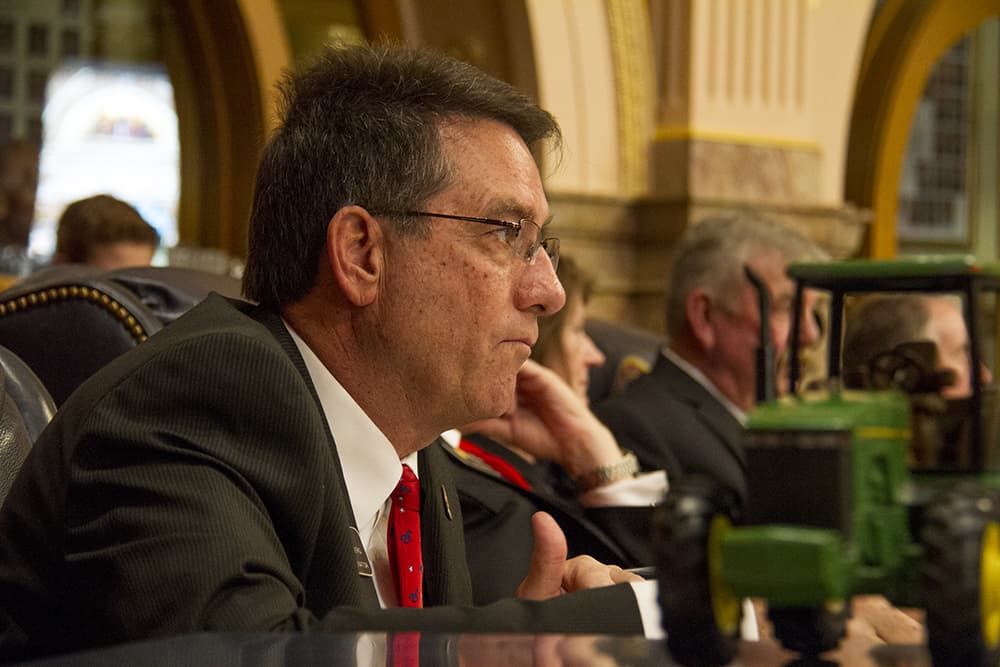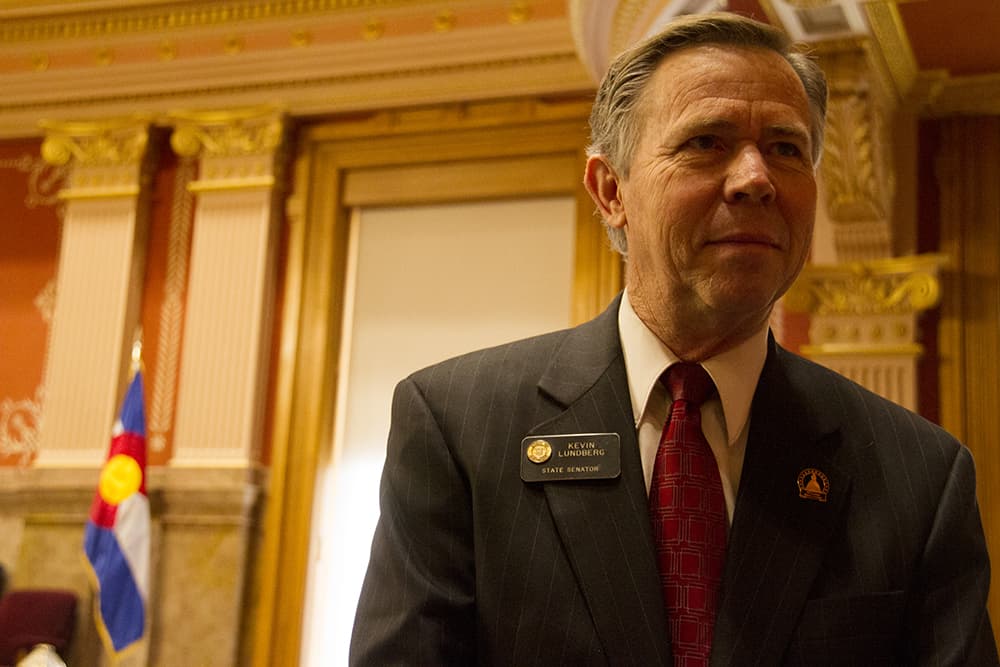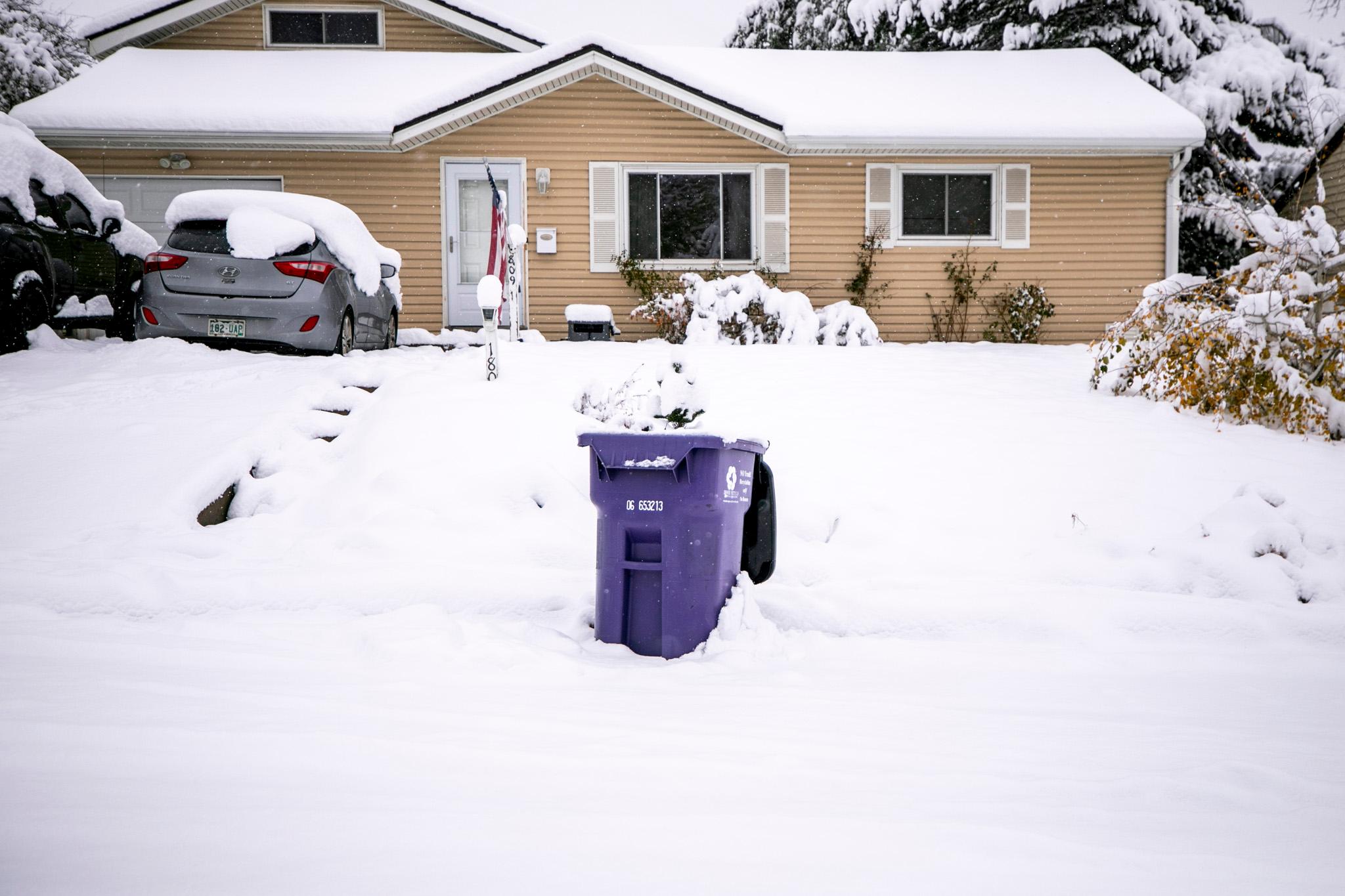
SB17-267 is going to save the day for Colorado hospitals and open up breathing room in the rest of the budget for hundreds of millions of dollars in spending. Senate Minority Leader Lucia Guzman called it the most important bill of this session. Sen. Kevin Lundberg, a Berthoud Republican, called it "one of the worst pieces of legislation I've seen."
The most significant thing this bill does is move the hospital provider fee into an enterprise fund. This means the legislature won't have to cut $264 million from hospitals -- $528 million when lost federal matching dollars are included -- to prevent cuts in other parts of the budget. If those cuts were to go through, as many as 12 hospitals might close, and others would have to lay off staff and end programs.
The bill also means the budget should have more wiggle room under the revenue cap imposed by the Taxpayer's Bill of Rights. Even though the bill reduces that revenue cap by $200 million and asks state departments to submit proposed budgets next year that are 2 percent smaller than this year, there will be room for more spending because the hospital provider fee program was taking up so much room in the budget. (If this is confusing, I'll explain it in a little more detail down below.)
According to a fiscal analysis by legislative staff, the bill would eliminate the need for an estimated $288.6 million TABOR refund in the 2018-19 budget year. That sort of refund would have meant a reprise of the difficult budget decisions the legislature faced this year. Instead, revenues are likely to be under the cap by roughly $383 million.
The bill has funding for rural roads, money for schools, higher taxes for marijuana users, higher co-pays for Medicaid patients, tax credits for small business owners and protections for older home owners. There is A LOT crammed in there.
SB 267 is coming in under the wire. The bill's own sponsors didn't agree on the final form of the compromise until Thursday, and it passed out of the Senate Appropriations Committee 5-2 Friday morning before the fiscal analysis was even complete. It went almost immediately to the Senate floor, where it passed on an initial voice vote. It needs another vote in the Senate on Monday before heading to the House. The session ends on Wednesday.
This is a "Christmas tree" bill in some ways, with all sorts of things hung from its branches.
But those ornaments aren't there just to look pretty. Some pieces provide tax relief to certain groups, while others bring in new revenue to offset those cuts. And critically, the legislature won't have to ask the voters for approval for these new revenue sources. This bill looks in the nooks and crannies of state government to find a few million here, tens of millions there, and it has enough stuff that Democrats and Republicans want that it can probably get through both chambers.
Sen. Jerry Sonnenberg, a Sterling Republican, introduced the bill back in March because hospitals in his district faced a particularly dire scenario if the cuts to the hospital provider fee went through. He was joined by Guzman, a Denver Democrat who withdrew her own bill to reclassify the fee in order to work with Sonnenberg, and in the House by Majority Leader K.C. Becker, a Boulder Democrat, and Rep. John Becker, a Brush Republican. But he faced major pushback from Democrats, including his co-sponsors, about the reduction in spending required by the original version. The bill was still hung up on the details until late in the week.
"This is a compromise, and when you have one party in charge of one chamber and the other party in charge of the other chamber, you don’t get everything you want," Sonnenberg said on the Senate floor. "There are problems that need to be solved, and this can’t wait."

TABOR purists in the Republican Party really don't like this bill.
Lundberg, chair of the Appropriations Committee, questioned the constitutionality of a bill that moves roughly $800 million into an enterprise fund while only reducing the revenue cap by $200 million. As chair, he would have killed it in committee, but Sonnenberg rallied other committee members to sign a letter asking for a hearing.
"I believe this is one of the worst pieces of legislation I've seen in my 15 years in the legislature that has a pretty strong possibility of becoming law," Lundberg said.
That said, if the hospital provider fee program were to go away entirely, perhaps due to changes in how Medicaid is distributed to the states, the revenue cap for the rest of the budget would now be lower than it otherwise would have been.

What is this hospital provider fee? What is this TABOR cap?
The fee gets assessed on hospital's patient revenue and matched by federal dollars, then redistributed to hospitals based on their Medicaid patient load to improve reimbursement and offset the cost of uncompensated care. The problem is that the fee added a lot of money to the state budget, and for the last several years, the state's been bumping up against the revenue cap imposed by the Taxpayer's Bill of Rights. This cap only allows revenue to grow by population plus inflation, and when the state takes in more because the economy is doing well, it has to return money to taxpayers.
In order to avoid that refund and cuts to other programs, the legislature has reduced the amount of hospital provider fee money it collects from hospitals. But in turn, that means less federal match and less money for poorer hospitals with higher Medicaid patient loads. SB-267 turns the hospital provider fee into an enterprise, a kind of self-contained state business that is exempt from the TABOR limit. The fee revenue would no longer crowd out the rest of the budget that pays for schools and roads and environmental monitoring and state patrol and so on
Who pays more under the bill?
Marijuana consumers will see sales tax go from 12.9 percent to 15 percent. The general state sales tax of 2.9 percent would go away, but the special tax rate would go to the full 15 percent allowed by law. This will generate more than $40 million a year in new revenue, according to the fiscal analysis. The money will go partially to education and partially to pay for business tax credits. As the Denver Post reported, this strains the bounds of what voters said marijuana tax money could be used for.
Medicaid patients will pay more for medicine and outpatient services. Republicans have wanted to increase these co-pays so patients have more "skin in the game," in Sonnenberg's words. Democrats have balked at asking the state's poorest residents to pay more, and this was a sticking point in the final negotiations. Co-pays for medication will go from an average of $1.27 to $2.45, while co-pays for outpatient services will go from $3 to $4 and for emergency services will go from $3 to $6. Medicaid patients earn 133 percent of the federal poverty limit or less, $16,044 for a single adult and $32,724 for a family of four, so some of these folks will feel the pinch of even a few more dollars. The fiscal analysis predicted the state would save around $4.3 million a year from these increased co-pays.
Who pays less?
Businesses that pay business personal property tax will be able to claim a credit on their income taxes equal to the taxes they paid on the first $18,000 of property value. That's up from $15,000 under current law, but less than the $25,000 Sonnenberg thought he had secured earlier in the week.
And while it's not a matter of paying less so much as a matter of continuing to not pay, the bill protects the senior homestead tax exemption so that older Coloradans can continue to get a break on their property taxes. And it allows the state to treat the cost of this exemption as the first piece of a TABOR refund in years when a refund is owed.
This may be the only transportation funding bill to get out of the legislature.
The Senate Finance Committee killed HB17-1242, the $3.5 billion transportation funding deal that was supposed to be one of the top priorities for this session. A Republican-sponsored counter-proposal is making its way through the Senate in the final days of the session. It would ask voters to approve a bond program for roads financed mostly from existing revenue, as well by applying vehicles taxes to older models. It not likely to find favor with the House.
Meanwhile, without going to the voters, SB 267 would provide funding for a $1.8 billion spending program -- mostly for roads but also for capital construction -- to be financed through lease-purchase agreements. This is basically taking out a mortgage on state-owned property. For the roads portion, 25 percent of the money will be earmarked for rural areas.
What's next?
Getting this bill passed is going to be a top priority for the remaining three days of the session. The original budget, which contains the cuts to hospitals, has already gone to the governor and is likely to be signed if SB 267 doesn't pass.
Correction: This story has been updated to correct the income levels that represent 133 percent of the federal poverty limit.












